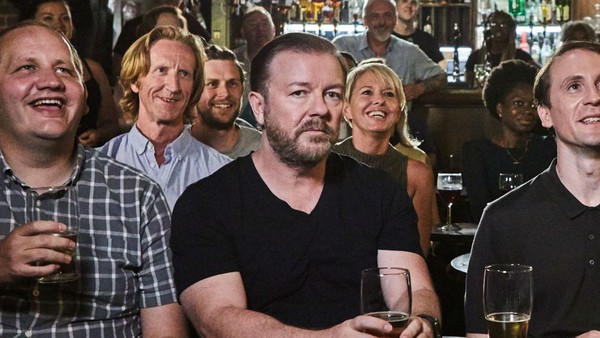Netflix's After Life Review: 6 Ups & 3 Downs
2. The Nuance (Eventually) In Ricky Gervais' Performance

In the two most popular of Gervais' past shows - Extras and The Office, which he will (rightly) forever see his work compared to - and indeed in the persona he projects on social media and in his stand-up work (it's a character, no matter how much he might be inclined to claim otherwise), the key to the impact of his characters follows the same trend.
They're mostly thoroughly detestable for some reason and then there's a disarming moment that redeems them. It's all bait and switch, which is a technique he's equally fond of in Derek too, but in different terms. It's short-term, most of the time, as opposed to a character's arc developing across multiple episodes.
In After Life, Gervais has taken a different approach, building Tony's redemption as he encounters different people and then peels their experiences back to see how his treatment of them affects them and how they have their own problems. He's essentially taken through multiple Ghosts of Christmas Present until at the end he has his George Bailey running through the streets moment and tries to do something for everyone, like Phil Connors.
And as that journey happens, the edgelord "I can say c*nt a lot of times and say Jesus is an !*$%" exterior peels away and far more nuance starts to appear. It might be his best performance, in actual fact.